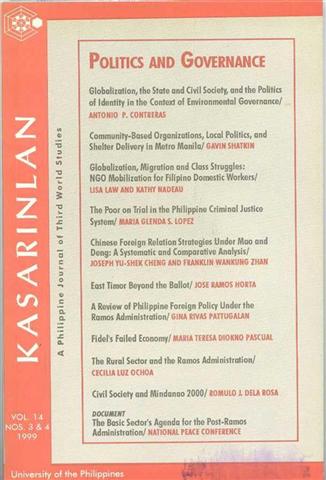A Review of Philippine Foreign Policy Under the Ramos Administration
Abstract
President Fidel V. Ramos was welcomed into Malacañang amid dramatic political and rapid economic changes in the world and he was more than determined to keep up. The globalization of the means of production, labor, finance and services, and the increasing interdependence among economies gave Ramos his cue. Through foreign policy, Ramos embarked on what was called Development Diplomacy, diplomacy aimed at enabling the country to access new markets and attract investors and tourists alike. This resulted in numerous trade agreements and reportedly billions in new investments and economic assistance. Ramos, through his rigorous conduct of economic diplomacy, ensured greater foreign business confidence in the country and greater access to the international market. These made for a resurgent economic performance and reinvention of the country’s image in the international arena. In political and security matters, foreign policy stressed the importance of cooperation against non-conventional threats to security, such as migration and transnational crime. To maintain regional and domestic peace and order, the Ramos administration pursued bilateral and multilateral linkages, including a very controversial episode with the US and the Visiting Forces Agreement. However, Ramos efforts on international linkages did not prevent China from pursuing its claims on the disputed islands. But it would probably take more than diplomacy to keep China within its borders.
How to Cite
PATTUGALAN, Gina Rivas.
A Review of Philippine Foreign Policy Under the Ramos Administration.
Kasarinlan: Philippine Journal of Third World Studies, [S.l.], v. 14, n. 3, aug. 2007.
ISSN 2012-080X.
Available at: <https://journals.upd.edu.ph/index.php/kasarinlan/article/view/1623>. Date accessed: 02 sep. 2025.
Section
Special Report
Keywords
Fidel V. Ramos, Philippine Foreign Policy, Development Diplomacy
By submitting a manuscript, the authors agree that the exclusive rights to reproduce and distribute the article have been given to the Third World Studies Center.



